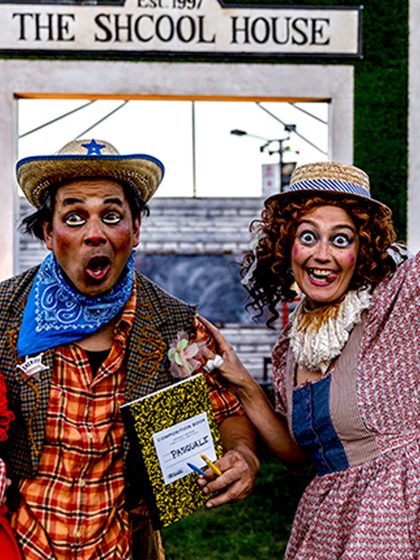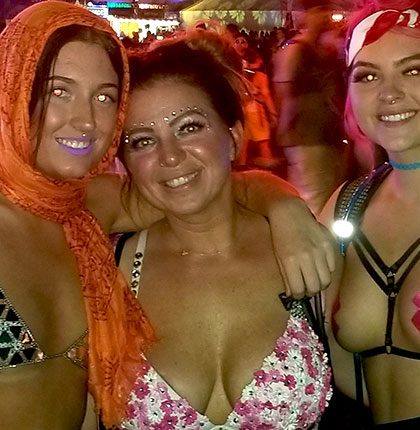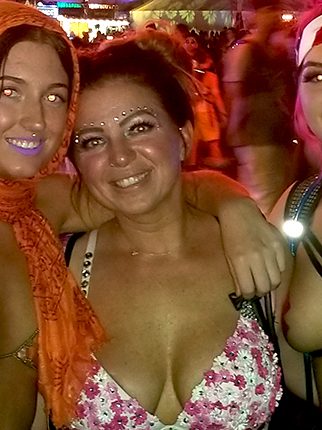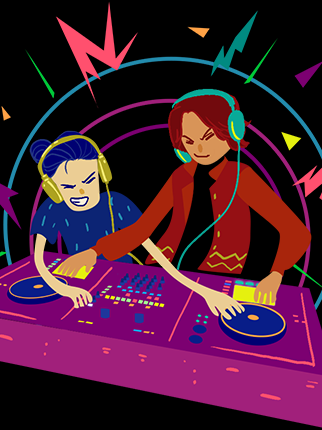Is It Time Dance Music Became Political?
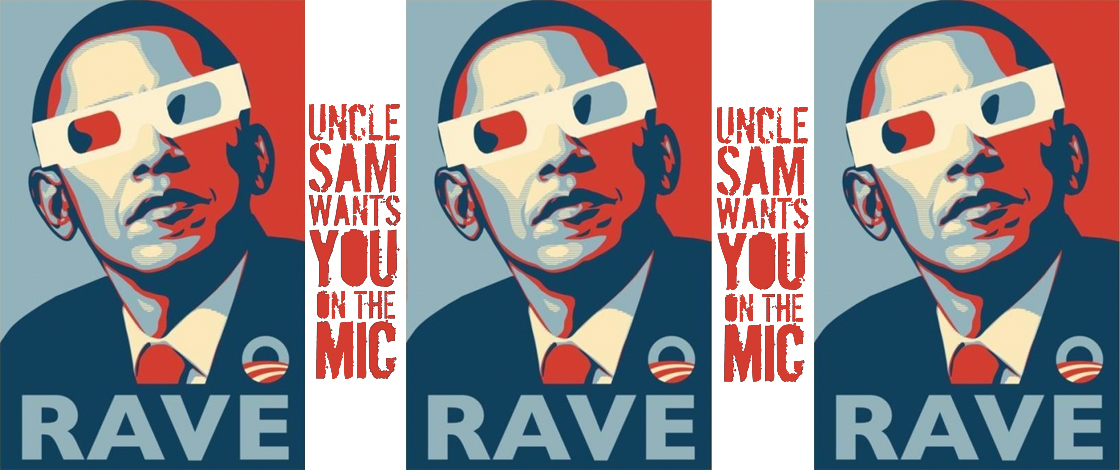
What a morbid, infuriating and depressing year we’ve all endured. Were it not bad enough that we had to bid a premature farewell to David Bowie, Prince, Leonard Cohen, and disco godfather David Mancuso, we’ve had to watch in horror as the nation mercilessly tore itself apart over conflicting views of a better tomorrow. Depending on what side you’re on (and if you’re reading this, we assume you were firmly against one side, if not firmly supporting the other), you were either visibly convulsing at how things turned out or giddy about the staggering spread of uncertainty facing this country—and indeed, the human race. I’m going to forcibly stop myself from launching headstrong into a tirade of political vitriol, but I am going to wonder if it would even be beneficial to the scene for me to do so.
Dance music is, at its very core, a form of countercultural protest. The origins of the scene lie in creating a safe space for the gay black community to express themselves and feel safe from the societal oppression they faced in the US in ‘70s and ‘80s. In clubs like the Loft, Paradise Garage and Studio 54, the LGBTQ community, as well as the largely marginalized African-American and Puerto Rican communities, could throw off the shackles that bound them from expressing themselves and lose it to disco and proto-house music. But rather than being political itself, that scene was a safe haven for people to escape the politics that shaped and hindered their everyday life.
“If Steve Aoki wove a poetic and antiestablishment verse à la Woody Guthrie over his latest banger, it would likely be met with a tepid or nonexistent response. We want the sound, not the meaning, and the voice is just another instrument to blow our minds with.”
When acid house hit the shores of the UK in the late ‘80s it was quickly adopted by the working classes largely left behind by the cutthroat, loadsamoney brand of Thatcherite politics that had defined the decade. While you might not have had a job and lived in an economically depressed area, raving was an outlet for you to forget about all that shit and enjoy yourself. The scene was mobilized in 1994 to battle the notorious Criminal Justice Bill, with mass protests and renegade free parties being thrown in London—but aside from that, it was largely about hedonism and fun for all.
Exit Festival in Serbia is a curious case of a festival being used as a political catalyst for young people to ignite revolt. Started in 2000 by students in Novi Sad, the festival brought Serbian students together for 100 days to stand together and party in the face of the authoritarian though then-beleaguered regime of despot ruler Slobodan Milošević. While today Exit is similar to many European destination festivals—a welcoming vacation spot for legions of rowdy Brits looking for a sunned binge—it has retained its staunchly sociopolitical foundations.
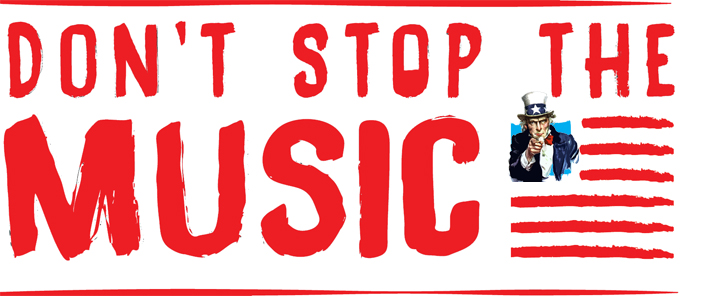
But on a global dancefloor, the music itself has shied away from becoming a political commodity. Perhaps some of you may have noticed, but lyrical depth isn’t really a virtue in electronic music. “Take me higher,” “How deep is your love,” “In the beginning there was Jack”—almost none of it is steeped in the political rhetoric that defined rock, folk and pop in the ‘60s and ‘70s. Yes, the deep house genre was originally established to categorize more spiritually inclined house music, but it was hardly political. If Steve Aoki wove a poetic and antiestablishment verse à la Woody Guthrie over his latest banger, it would likely be met with a tepid or nonexistent response. We want the sound, not the meaning, and the voice is just another instrument to blow our minds with.
“I don’t want DJ sets being interrupted by shrill activists getting on the mic and imploring all of us to start paying attention to down-ballot politics, or to pick up a flyer on the way out to find out how we can ‘join the movement.’ The only flyers I want on the way out are for the next fucking party.”
And that’s precisely it. We should all just get along, and we should keep the dancefloor a place for that. If you’re going to chat to the strangers next to you, tell them you love their outfit, that this track is a “pure heater,” or that you’re simply glad they’re here with you. Don’t ask them what they think about Trump’s cabinet. Don’t wax lyrical about how Bernie could have beaten him. Don’t even ask them to come to your monthly “Cheese & Wine 4 Stein” night.Earlier this year in Los Angeles, we saw local DJs and scene-steeped Facebook socialists come together to collectively endorse Bernie Sanders, with L.A.’s Berning party at Sound being one of my favorite club nights of the year (though largely because it was just a big old rinse with a strong local ensemble). But out in the smoking area, the raggedy but well-meaning crowd was struggling to string coherent statements together about Bernie’s policies, instead just reverting back to shaking their heads and saying, “I dunno, man; we should all just get along.”
Our scene is deeply political, insofar as it’s been consistently apolitical in deeply political times. We all have pretty similar views and have a worldly, loving outlook because that’s expected of you the second you walk in the door. If you don’t like gay people, get out; we don’t want you. If you don’t think everyone—regardless of gender, race, sexuality or religious beliefs—are equal, get out. We don’t want you, either. This ideology is shared across our entire scene, and it doesn’t need to be embattled or pointed against something in order to achieve a higher purpose. It already serves a high purpose.
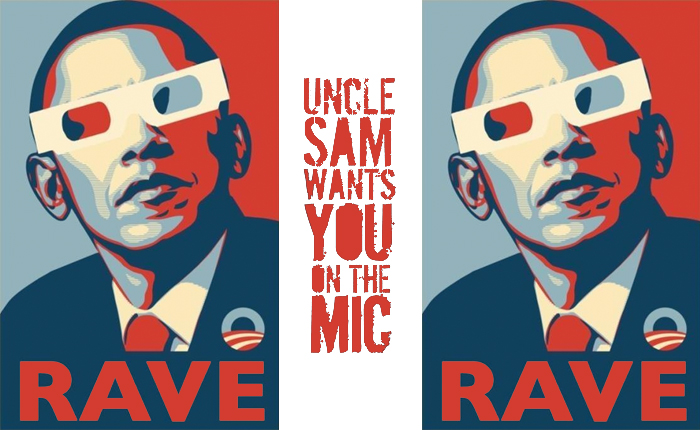
Don’t get me wrong; I was delighted to see the Black Madonna come out swinging and share her articulate and vital perspectives on the result of the election and what it could mean for women, immigrants, people of color, and the gay community. But I was not happy that one of the bookers for new Brooklyn nightclub Schimanski was the subject of a liberal witchhunt, eventually being dragooned into resigning for espousing pro-Trump statements online. Groups are popping up all over Facebook like shroomies in cow shit, trying to mobilize the dance scene to protest our president-elect. While I admire their energy and intent, I don’t want to start politicizing the dancefloor. One could argue that over-politicizing our social discourse got us into this fragmented state in the first place.
I don’t want to go to Hardstyle Hates Homophobia, or Tech Yes Trump No, or Dubstep Denounces Demagoguery. I don’t want DJ sets being interrupted by shrill activists getting on the mic and imploring all of us to start paying attention to down-ballot politics, or to pick up a flyer on the way out to find out how we can “join the movement.” The only flyers I want on the way out are for the next fucking party. Yes, we should be talking about it, and yes—if we choose to—we should be fighting for just causes. But don’t take away the one place we have to forget about all that polarizing bullshit and just love one another.
TL;DR: No. Don’t bring that shite in here. Leave it at the door, and keep this sacred place free of politics, as it always has been. Yes, you can and should be political. Our DJs should speak out and energize their fans to support causes held close to their hearts. Events can—occasionally—be thrown under the banner of political causes. But we definitely don’t want to hear you yammering uniformed bollocks about Trump/Pence/Sanders/whomever while we’re dancing happily and trying to forget that the world outside of the dancefloor is burning down. Let’s keep this space about love, and nothing more.

